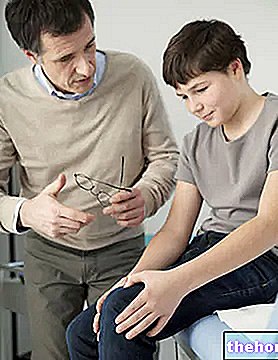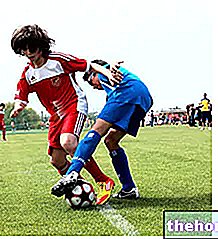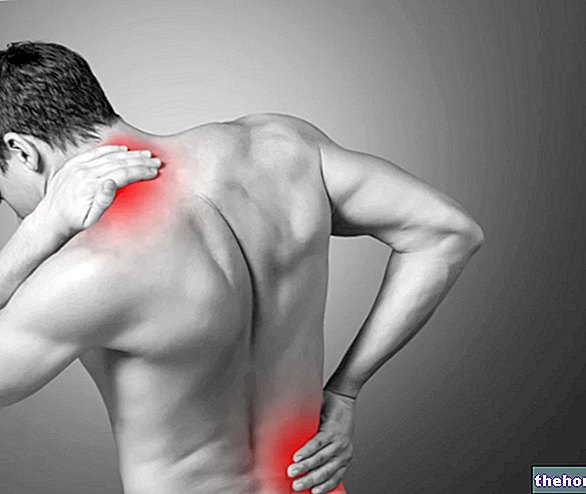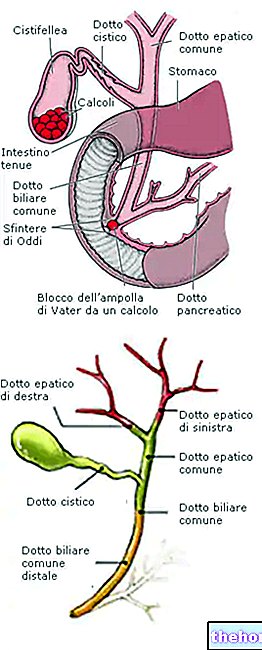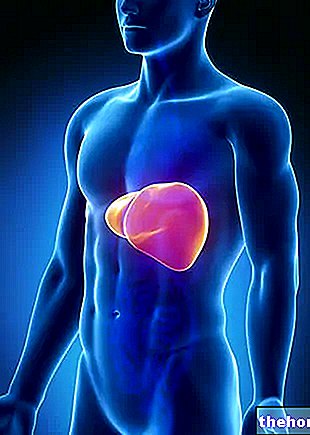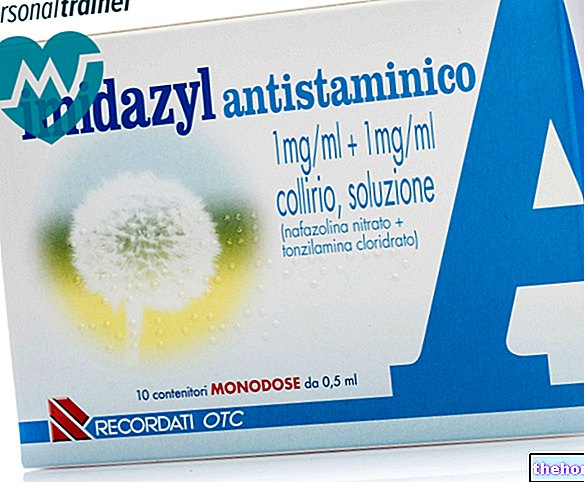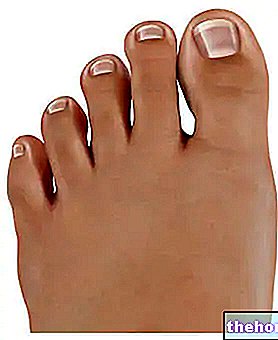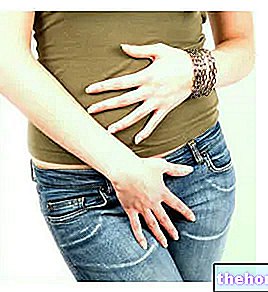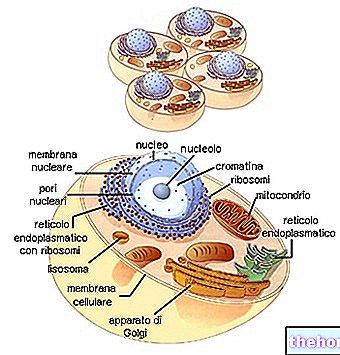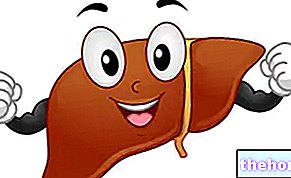Generality
Concussion is an "alteration of the state of consciousness due to trauma to the head. Due to the shaking of the brain, the affected person enters a confusional state limited in time, usually limited to a few minutes.

Causes
The three main causes of concussion are:
- Car accident;
- Accidental fall;
- Sports injury or during other recreational activities.
A concussion can also occur when the head and upper body are shaken violently.
Underlying the condition c "is a functional disturbance of a part of the brain, known as reticular activation system (RAS). RAS is a complex of brain cells that belongs to the central nervous system and contributes to:
- Regulate the sense of consciousness and awareness;
- Check wakefulness and circadian rhythm.
The reticular activation system also acts as a filter: it allows you to ignore irrelevant information, to focus on necessary details.
During a head injury severe enough to cause a concussion, the brain is moved from its normal position for a short period of time. This rotation interrupts the electrical activity of the neurons that make up the RAS, which, in turn, triggers symptoms associated with the trauma, such as:
- Memory loss;
- Short period of unconsciousness;
- Mental confusion.
Who is at risk?
Studies show that children and adolescents are more vulnerable to concussions than other age groups and need more time to recover.
If a child returns to sport before full recovery, a second head injury could have far more serious consequences.
In elderly patients, accidental falls and motor vehicle accidents are the most common causes of concussion.
Sports activities that put people at a higher risk of suffering a concussion include: soccer, rugby, cycling, boxing, and martial arts, such as karate or judo.
A number of factors make some people more vulnerable to the effects of a head injury:
- The patient is 65 years of age or older;
- Previous brain surgery
- Conditions involving a blood clotting abnormality, such as hemophilia (bleeding easier) or thrombophilia (which makes the blood more prone to clotting);
- Therapy with anticoagulant drugs, such as warfarin or low-dose aspirin.
Signs and symptoms
After suffering a concussion, the patient may experience one or more of these symptoms:
Cognitive symptoms
- Amnesia (memory loss), such that you are unable to remember events that occurred before (retrograde amnesia) or after concussion (anterograde amnesia);
- Decreased reflexes;
- Confusion and difficulty concentrating.
Physical symptoms
- Headache;
- Visual disturbances, blurred or double vision;
- Perception of ringing in the ears (tinnitus)
- Nausea or vomiting
- Dizziness;
- Sensitivity to noise or light;
- Changes in taste or smell;
- Loss of balance and coordination problems
- Tiredness and lack of energy
- Sleep disturbances: insomnia or excessive sleepiness.
Psychological symptoms
- Personality changes or psychological adjustment problems: irritability, distraction, inappropriate emotional responses (example: suddenly bursting out laughing or crying);
- Mood disorders: nervousness, anxiety or depression.
The signs of a concussion may be mild and not immediately noticeable. Some individuals may feel them days or months after the injury.
Concussion can occur with or without loss of consciousness.
Warning signs. When any of the following warning signs occur, it is especially important to seek immediate medical attention:
- The patient remains unconscious after the initial injury;
- The patient has problems with understanding and difficulty in staying awake;
- The patient is confused, agitated and exhibits unusual behavior.
Other emergency signs include:
- Extreme sleepiness, which has persisted for over an "hour since" the injury;
- Muscle weakness on one or both sides of the body
- Persistent vision problems, unusual eye movements and different sized eye pupils
- Loss of consciousness;
- Difficulty speaking
- Vomiting or persistent nausea
- Convulsions or seizures;
- Bleeding from one or both ears
- Sudden deafness in one or both ears
- Fluid leaking from the nose or ears (this could be the cerebrospinal fluid surrounding the brain)
- Persistent and intense headache;
- Weakness, numbness, loss of balance, coordination difficulties or walking problems
- Persistent unconsciousness (coma).
Diagnosis and clinical management
Physicians play a key role in identifying and managing traumatic brain injuries. The person making the diagnosis tests the patient for a careful physical examination to check for any signs of more serious damage, such as bleeding from the ears or dyspnea. If the person is conscious, the doctor can ask questions, in order to measure the ability to pay attention, learning and memory. Some neuropsychological tests can evaluate strength, balance, coordination, reflexes and the perception of sensation.
The most commonly used diagnostic test to confirm a suspected brain injury is computed tomography (CT). This allows you to assess the extent of the head injury and makes sure that no hematomas or brain hemorrhages are present. Brain imaging is not always necessary after traumatic brain injury but is usually recommended in adults who:
- They lost consciousness;
- They have persistent problems with short-term memory and have difficulty speaking or opening their eyes;
- They have signs and symptoms that suggest a fracture at the base of the skull, such as clear fluid leaking from the nose or ears or the appearance of dark spots above and below the eyes ("black eye");
- They are confused or have other neurological symptoms, such as loss of sensation in some parts of the body, problems with balance and walking, and persistent changes in vision (example: blurred or double vision).
Alternatively, the damage can be assessed with an MRI or X-ray, especially if it is believed that the patient may have suffered injury to the neck bones.
Treatment
After a concussion, the patient should be closely monitored which, depending on the severity of the head injury, can last several days or weeks. The symptoms could, in fact, be at the basis of a more serious condition, as in the case of a subdural hematoma or a "subarachnoid hemorrhage.
Rest is the best way to recover from a mild concussion. In addition, a number of measures can be used to relieve symptoms:
- Avoid stressful situations and physically or mentally demanding activities (including housework, exercise, school, or computer use).
- Do not engage in activities that can cause further head injury;
- Apply an ice pack to the affected area to reduce swelling;
- Avoid drinking alcohol or taking drugs;
- Avoid exposure to very intense lights and sounds;
- Take medications prescribed by your doctor to control pain (example: acetaminophen);
- Do not drive or play contact sports without first consulting your doctor;
- Fasten your seat belt when driving the car and wear a helmet when cycling, skiing, snowboarding, skateboarding, motorcycling or any similar activity.
Recovery
Concussion can cause a wide range of short- or long-term complications, affecting thinking, feeling, language or emotions. These changes can lead to memory, communication and personality problems, as well as depression, mild cognitive impairment (MCI) and early onset of dementia.
Below are other potential complications of a concussion:
- Post Concussion Syndrome: This is a poorly understood condition in which the symptoms of concussion are persistent and can last for weeks or months after the injury.
- Post-traumatic seizures: Occur days or months after concussion and may require seizure management with anticonvulsant therapy.
- Epilepsy: The risk of developing epilepsy doubles within the first five years after concussion.
- Second Impact Syndrome: This can occur when a person is still symptomatic and suffers another head injury before full recovery from concussion. A second brain injury (or cumulative trauma) can be more dangerous than the previous one. Vascular congestion, in fact, leads to a sudden and massive increase in intracranial pressure, which can be difficult to control and can cause severe brain damage or death.
- Chronic Traumatic Encephalopathy (CTE): This is an example of cumulative damage. Chronic traumatic encephalopathy, also called boxer's encephalopathy, is a progressive neurodegenerative disease caused by repeated episodes of concussion. Typical signs and symptoms include a decline in memory, cognitive and physical deficits, and behavioral disturbances (especially depression, impulsivity, aggression , anger, irritability and suicidal behavior).
- Chronic traumatic encephalomyopathy (CTEM): A small subgroup of individuals with CTE develop a progressive disease characterized by profound weakness, atrophy and spasticity, similar to amyotrophic lateral sclerosis (ALS).
Post concussion syndrome
There post concussion syndrome (PCS) is the term used to describe a set of symptoms that can persist for weeks or months after concussion. These include:
- Changes in the ability to think, focus, or remember
- Mood swings and personality changes;
- Headaches and migraines (stabbing pain on one side or the front of the head);
- Tiredness;
- Dizziness;
- Sensitivity to lights and loud noises;
- Sleep disorders.
The exact cause of PCS is still unclear. One theory speculates that post concussion syndrome represents the result of a chemical imbalance in the brain, triggered by the initial damage. Another theory suggests that it may be an emotional and psychological response to concussion, possibly a milder form of post-traumatic stress disorder (PTSD).
There is no specific treatment for the symptoms of post concussion syndrome, although many medications used to treat migraines have also been shown to be effective in treating head pain. Antidepressants and psychotherapy can help control psychological symptoms, such as depression and anxiety. Most cases of post concussion syndrome tend to resolve within 3-6 months, and only one in 10 people will still have symptoms after a year.

